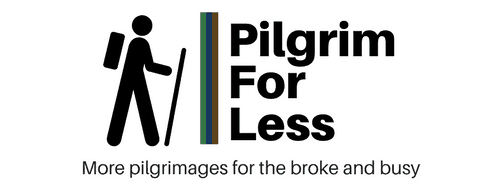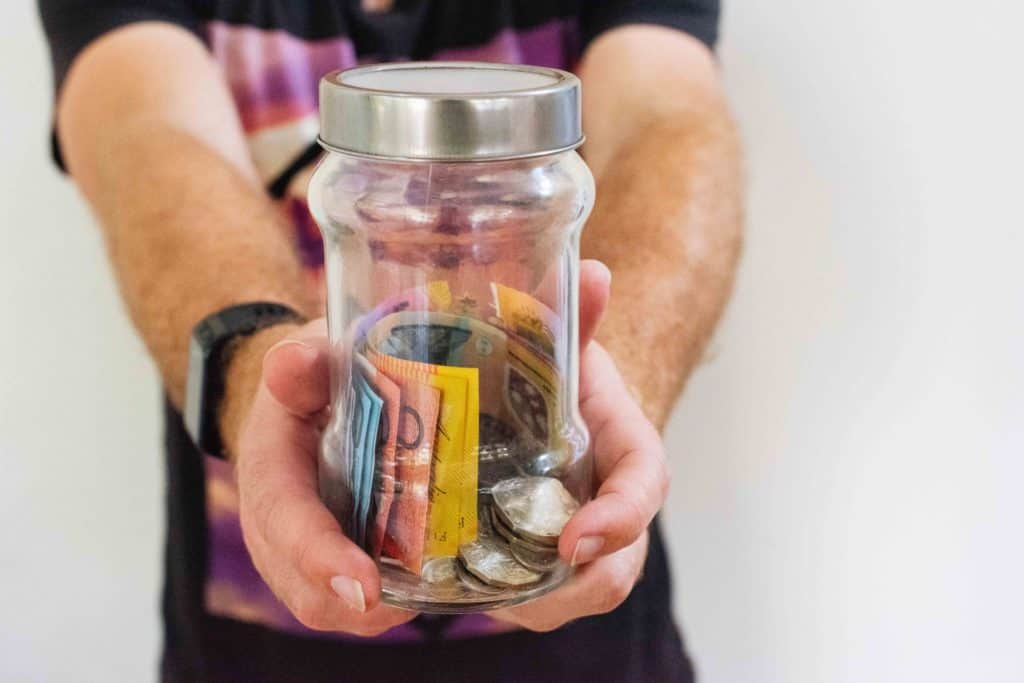The past few months have been a little rough with unexpected expenses. A few months ago, I accidentally hit some debris in the road causing damage to one of my car’s front tires, resulting in a flat. One month later, I accidentally drove over an uncovered manhole that damaged two of my tires. I replaced those tires too.
As I’m typing this blog post, I’m on a “new”, refurbished MacBook Pro 15″ (buying refurbished saved me $300-$400). I recently acquired it in preparation for an upcoming grad school class because the battery life on my older MacBook Pro 13″ is terrible, and it’s running out of hard drive space. My desktop computer died unexpectedly too. With my older laptop not performing reliably, I realized that my computing situation is not really conducive for handling my next grad school class, which will be research-intensive.
Spending hundreds of dollars on tires and thousands on a new laptop in the past several months really hit my finances hard.
I’m “MacBook Broke”.
I guess I’ll have to put pilgrimages on hold for now since having the funds to go travel is a little nonexistent at the moment…
But, the financial burden isn’t as bad as it seems. Why?
Because I have a substantial emergency fund.
Well, had.
With an emergency fund, I was able to afford multiple tire replacements and a new laptop.
For the aspiring pilgrim, knowing the importance of having an emergency fund is necessary in the greater scheme of going on more pilgrimages for less time and money.
What is an emergency fund?
Basically, an emergency fund is a stash of money that you use to cover unexpected expenses. Life is full of unexpected events that cost money, and an emergency fund helps cover those costs.
Emergency funds are not for funding pilgrimages, 100″ 4K TVs, new yachts, or buying entire shelves of things that went on clearance. Why? Because those aren’t actual emergencies!
Why have an emergency fund?
First and foremost, emergency funds should be used for actual emergencies. An emergency is something urgent or critical in nature and impacts your day-to-day life.
Here are some example emergencies:
- Loss of job – getting fired, laid off, or furloughed resulting in a loss of job and income
- Unexpected medical costs – injuries, accidents, kids or pets getting sick, hospital visits, and more that result in medical costs
- Repairs and replacements – water heater or A/C units breaking, roof leaks, car troubles, damage from natural disasters, necessary gadgets stop working
- Last minute travel – funerals, hospital visits for out-of-state friends/family
Having an emergency fund also has a few benefits.
Benefits of having an emergency fund
- Peace of mind – that “sit back and relax, can sleep at night” feeling knowing that you have prepared for the unexpected
- Build good money habits – starting, growing, and maintaining an emergency fund requires discipline and intentionality that helps with building good money habits
Where to start an emergency fund?
The easiest way is to have literal stash of cash somewhere secure in your home. Hopefully the stash is somewhere with limited access like a cash box or safe.
But I think a better way is to keep it in a bank account that is easy to access and that also earns interest.
I keep mine in a Capital One 360 Money Market savings account (not an affiliate link). Why? Because I can easily transfer funds to my Capital One 360 checking account when I need to. Also, the Money Market savings account currently earns 2% interest when funded with $10,000 or more, which is a great interest rate assuming there’s $10,000 or more.
Which I don’t currently have…lol. But it still earns 0.85%, which is still better than what you can get at most banks.
Other banks like Ally, Discover, and handful of others also offer high yield savings. Be sure to shop around to get a good interest rate!
How much money to keep in the emergency fund?
I’ve heard and read different suggestions, but for me, I try to have 3 months worth of necessary expenses saved up in my emergency fund. For me, that number hovers around $9000.
The consensus in the personal finance community seems to be that the ideal amount to have is 6-8 months of expenses saved up. But wow that’s a lot of money to save so I aimed for something a little more achievable. My rationale is…should I lose my job, I can probably find a new one within 3 months.
Dave Ramsey suggests starting out with $1000 for an emergency fund. After saving $1000, then work on other personal finance goals or Ramsey’s next “Baby Steps”.
How to add more money to your emergency fund
For me, I do automatic transfers. Twice a month, I have an automatic transfer from my checking account into my emergency fund for a set, budgeted amount. I like funding it automatically so that it’s more out of sight, out of mind.
Here are some other ways to grow an emergency fund:
- Use your tax refund – if you receive a decent tax refund after filing your taxes, that refund is a good way to kickstart or build your emergency fund
- Sell stuff – whenever you go all Marie Kondo (verb) in order to spark more joy with your possessions, consider selling the things that cluttered your life in order to make some money back
- Start a side hustle – having multiple streams of income is a good way to achieve financial goals, and a side hustle is a good way to monetize your passions and hobbies
- Increase your income – get a raise or promotion at your current job, or find a higher paying job
Bottom Line
Yep, I am “MacBook Broke”, but thankfully an emergency fund allows me to cover unexpected costs. If I didn’t have an emergency fund, my credit card balances would have gone way up with no real cash to pay those cards off.
Starting an emergency fund is not that hard, and funding it is pretty easy perhaps with some creativity.
For the pilgrim, having an emergency fund will give peace of mind and security regarding finances. That way, traveling and pilgrimages are more realistic knowing that whenever life happens, you can handle it.
Do you have an emergency fund? How much do you keep in it?
Photo by Melissa Walker Horn on Unsplash

JR is a full-time engineer working in the aerospace industry. Apart from having such a fly job, he flies unto the arms of Our Lady and the Church pursuing his faith and a relationship with Christ. Over the past several years, faith and flying via pilgrimages became a thing. When he’s not being fly, JR hangs out with family, friends, his chihuahua, and with thoughts of the next trip.

